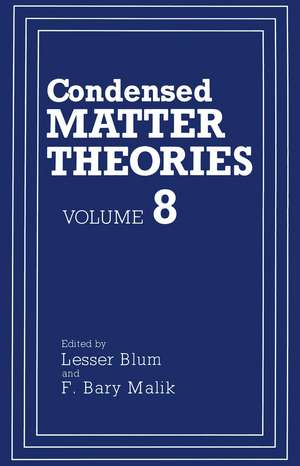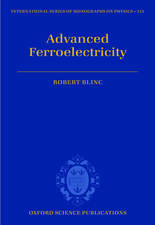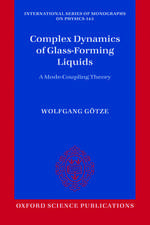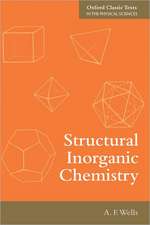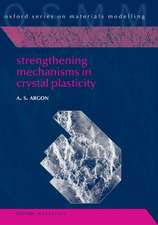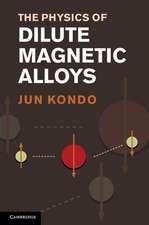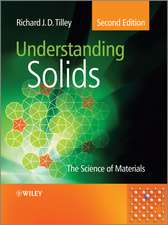Condensed Matter Theories: Condensed Matter Theory, cartea 8
Editat de Lesser Blum, F.Barry Maliken Limba Engleză Paperback – 5 noi 2012
Preț: 415.68 lei
Nou
Puncte Express: 624
Preț estimativ în valută:
79.54€ • 83.27$ • 65.81£
79.54€ • 83.27$ • 65.81£
Carte tipărită la comandă
Livrare economică 01-07 aprilie
Preluare comenzi: 021 569.72.76
Specificații
ISBN-13: 9781461362746
ISBN-10: 1461362741
Pagini: 700
Ilustrații: XI, 684 p.
Dimensiuni: 156 x 244 x 37 mm
Ediția:Softcover reprint of the original 1st ed. 1993
Editura: Springer Us
Colecția Springer
Seria Condensed Matter Theory
Locul publicării:New York, NY, United States
ISBN-10: 1461362741
Pagini: 700
Ilustrații: XI, 684 p.
Dimensiuni: 156 x 244 x 37 mm
Ediția:Softcover reprint of the original 1st ed. 1993
Editura: Springer Us
Colecția Springer
Seria Condensed Matter Theory
Locul publicării:New York, NY, United States
Public țintă
ResearchCuprins
Solid State Physics, Superconductivity.- Electronic Structure of Highly Correlated Systems.- Density Functional Theory and Generalized Wannier Functions.- Short-Range Structure and Dynamics of Metal Films.- Dynamic Mechanisms of Disorderly Growth.- Pairing and BCS Theory in an Exactly-Soluble Many Fermion Model.- Collections in Coupled Electron Layers.- Mean Field Predictions of the Dilute tJ Model for High Temperature Superconductivity.- Coulomb Coupling and Virtual Phonon Exchange in Spatially Separated 2D Electron Systems.- Exchange Energy: A Non-Local Selfconsistent Quantal and Semiclassical Approach.- Bogolons in a Multicomponent Many Fermion System and the Energy Gap.- First Principles Electrostatic Potential of Impurities in Quantum Wells.- Dynamics of Correlated Superlattices.- Crystalline Structures in the Deformable Jellium.- Quantum Fluids.- Recent Progress in the Variational Statistical Mechanics of Bose Fluids.- Density-Quasiparticle Interpretation of Excitations in Liquid 4He.- Trapping of Vortices by Impurities in 4He.- Unusual One-Electron States on the Surface of Liquid Helium.- Excitations of the Surface of Liquid 4He.- Magnetic and Pairing Properties of Liquid 3He: A Density Functional Approach.- Quantum Thermodynamic Perturbation Theory for Fermions.- Nuclear Physics.- Nucleonic Superfluids.- Energy Density Functional Formalism and Nuclear Fission.- FHNC Study of N=Z Nuclei.- A Coupled Cluster Study of Abelian Lattice Gauge Field Theories.- Physical Regions of an Equation of State.- Cluster Expansions and Variational Monte Carlo in Medium Light Nuclei.- Quantum Statistical Inference.- Information Theory-Based Variational Approach in Correlated Fermion Lattices.- Maximum Entropy Variational Approach to Collective States.- Time-dependent N-Level Systems.- Atoms and Molecules.- Atoms in Molecules.- Density-Functional Theory of Large Systems: A Divide-and-Conquer Approach.- The Exchange-only Self-consistent Field Procedure in the Local-Scaling Version of Density Functional Theory: Some Theoretical and Practical Considerations.- The Fock-Space Coupled Cluster Method Extended to Higher Sectors.- Classical Fluids, Polymers, Plasmas.- Liquid-State Theory for Some Non-Equilibrium Processes.- New Free Energy Model for Non-Uniform Fluids.- Integral Equations for Inhomogeneous Fluids.- Fluids of Hard Convex Molecules.- Statistical Mechanics of Fluids at High Dimensions.- Molecular Simulation of Vapor-Liquid Equilibrium in Mixed Solvent Electrolyte Solutions.- Solvation Dynamics in a Stockmayer Fluid.- Polar/Non-Polar Fluid Mixtures.- Topological Field Theory of Polymer Entanglements.- Elasticity of a Self-Avoiding Polymer.- Defect Diffusion With Drift and the Kinetics of Reactions.- Flexibility of Polysacharides Using Molecular Dynamics.- Simple Models of Intermolecular Potential for the Condensed Phases of C60.- A Modified BGY Equation for Classical Fluids.- A Modified Poisson-Boltzmann Treatment of an Isolated Cylindrical Electric Double Layer.- Theoretical Calculation of the Optical Absorption of Fractal Colloidal Aggregates Using a Multiple Scattering Formalism.- Recent Theoretical Developments in the Analysis of the Viscoelastic Behaviour of Materials.- Lattice Theories, Phase Transitions.- Line tension at Wetting and Prewetting Transitions.- Interfacial Phase Transitions Underlying Amphiphile Micellar Self-Assembly.- Hot Solid Properties From Liquid Structure Within Density Functional Theory.- Highly Asymmetric Electrolyte Suspensions in the Primitive Model.- Computational Modeling of Oxygen Ordering and Structural PhaseTransitions in Y Ba2Cu3O6+x.- Phase Transitions at the Fluid-Solid Interface in a Model for the Adsorption of Hard Spheres.- Ferromagnetic-Paramagnetic Phase Transition in a Random-Bond Potts Model.- Cellular Automata.- Cellular Automata and Spread of Damage: General Consideration and a Recent Illustration.- Fundamental Quantum Mechanics.- Hannay Angle in Classical Mechanics and its Gauge-Invariant Generalization.
